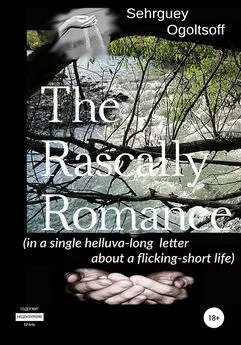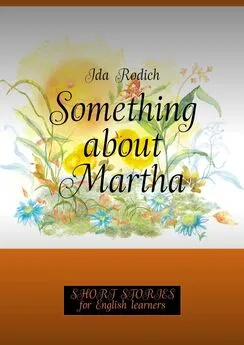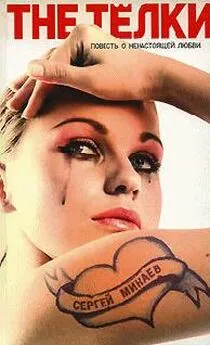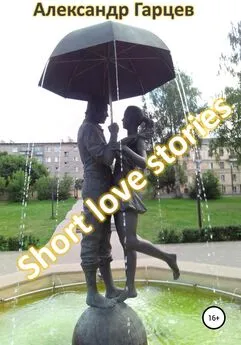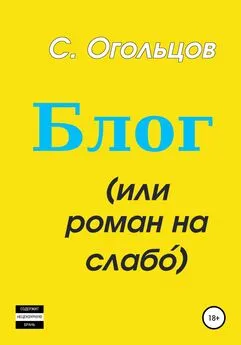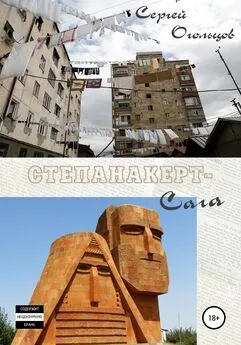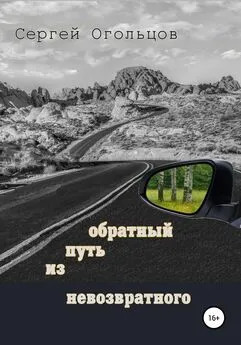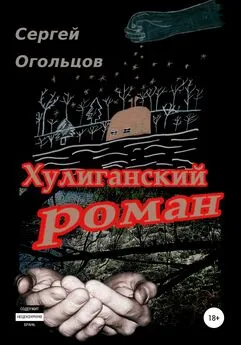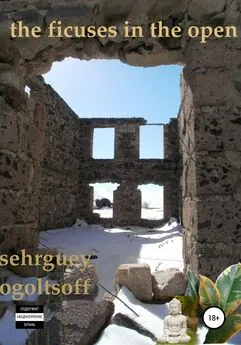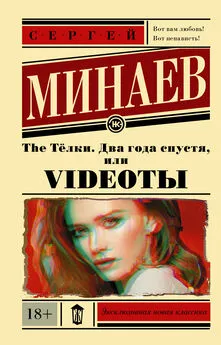Сергей Огольцов - The Rascally Romance (in a single helluva-long letter about a flicking-short life)
- Название:The Rascally Romance (in a single helluva-long letter about a flicking-short life)
- Автор:
- Жанр:
- Издательство:неизвестно
- Год:2022
- ISBN:нет данных
- Рейтинг:
- Избранное:Добавить в избранное
-
Отзывы:
-
Ваша оценка:
Сергей Огольцов - The Rascally Romance (in a single helluva-long letter about a flicking-short life) краткое содержание
Содержит нецензурную брань.
The Rascally Romance (in a single helluva-long letter about a flicking-short life) - читать онлайн бесплатно ознакомительный отрывок
Интервал:
Закладка:
I looked back at my Mom. She waved and smiled, and said something which I could not already hear. Black-haired, young, beautiful…
~ ~ ~
At home, Mom announced that everyone praised Seraphima Sergeevna Kasyanova as a very experienced teacher and it was so very good I got into her class.
For quite a few months, the experienced teacher kept instructing us in writing propped by the faded horizontal lines in special copybooks, crisscrossed by slanting ones, whose purpose was to develop identical right slant in our handwritings and all that period we were allowed to use nothing but pencils. We scribbled endless lines of leaning sticks and hooks which were supposed to become, later, in the due course, parts of letters written with an elegant bent even without the propping lines in the pages of ruled paper. It took an eternity and one day before the teacher’s information that we got readied for using pens and should bring them to school the following day together with no-spill ink-wells and replaceable nibs.
Those dip pens—slender wooden rods in lively monochrome color with cuffs of light tin at one end for the insertion of a nib—I kept bringing with me from the first school day under the long sliding lid in a wooden pencil-box. As for the plastic no-spill ink-wells, they indeed prevented the spillage of ink holding it in between their double walls if the ink-well got accidentally knocked over or deliberately turned upside down.
The pen’s nib was dipped into the ink-well, but not too deep because if you picked up too much of ink with the nib tip, the ink would drop down into the page—oops!—a splotch again… One dip was enough for a couple of words and then – dip the nib anew.
At school, each desk had a small round hollow in the middle of its front edge to place one ink-well for the pair of students sharing it to dip, in turn, their pens’ nibs in. The replaceable nib had a bifurcated tip, however, its halves, pressed tightly to each other, were leaving on the paper a hair-thin line (if you didn’t forget to dip the pen’s nib into the ink-well beforehand). Slight pressure applied to the pen in writing made nib’s halves part and draw a wider line. The alteration of thin and bold lines with gradual transitions from one into another presented in the illustrious samples of the penmanship textbook drove me to despair by their unattainable calligraphy refinement…
Much later, already as a third-grade student, I mastered one more application of dip pen’s nibs. Stab an apple with a nib and revolve it inside for one full rotation, then pulling the nib out you’ll have a little cone of the fruit’s flesh in it, while in the apple side there appeared a neat hole, into which you can insert the extracted cone, reversely. Got it? You’ve created a horned apple.
Then you may add more of such horns until the apple starts looking like a sea mine or a hedgehog – depending on the perseverance of the artificer. Finally, you can eat your piece of art but I, personally, never liked the taste of the resultant apple mutant…
And after one more year at school, in the fourth grade, you learned the way of turning the dip pen’s nib into a missile. First, break off one of the halves in the sharp tip of the nib to make it even sharper, then split the opposite insertion butt-end and jam into the crack a tiny piece of paper folded into four-wing tail-stabilizer to obtain bee-line flying mode.
Now, throw your dart into some wooden thing—the door, the blackboard, a window frame would equally do—the prickly nib’s half will pierce deep enough to keep the missile sticking out from the target…
The trail to school had become quite familiar, yet each time a little different. The foliage fell, the droughts began roaming between the naked tree trunks and the school was peeping thru them even before you reached the big Aspen by the swamp, on whose smooth bark there stood the knife-cut inscription: “It’s where the youtth is wasted”.
(…until now the literary magazine The Youth shocks me with a crying deficiency they spell the periodical's name with…)
Then the snowfalls began, however, by the end of the day, the wide path thru deep snowdrifts to the school got trodden anew. The sun sparkled blindingly from both sides of that road to knowledge transformed into a trench with orange marks of urine on its snow walls. Totally obliterated by the next snowfall, they would persistently pop up again at other spots in the restored and deepened trench-trail thru the forest…
A few weeks before the New Year, our class finished studying the primer and Seraphima Sergeevna brought us to the school library, a narrow room with one window on the second floor. There she introduced us to the librarian as accomplished readers who had the right to visit her and borrow books for our personal reading at home.
That day, returning home with my first book, I stretched upon the big sofa and never left it but only turned from one side to the other, and from my tummy to my back, until finished the entire book which was a fairy-tale about the city with narrow streets walked by tall hammer-creatures who banged on the heads of shorter bell-creatures to make them ring. Just so a story by Aksakov about a music-playing snuff-box…
~ ~ ~
Winter evenings were so hasty rides, you had barely had your meal and scribbled away your calligraphy home assignment when – look! – it’s already deep dusk outside the window.
Yet, even the dark could not cancel the social life and you hurriedly put your felt boots on, and pulled warm pants over them, and got into your winter coat followed by the fur hat and – off you ran to the Gorka! How far away? Just around the corner! Because “the Gorka” indicated not only the two blocks as well as the whole upland but also that very tilt towards the Recruit Depot Barracks which we walked down on our way to school.
With its well-trodden snow, the Gorka served ideally for riding sleds. The start was taken from the concrete road surrounding the blocks. The deep rut left in the snow by tires of random cars confirmed that the road was still there and so did the bulbs shedding the light from their lamppost tops. One of those posts marked the start in the Sleigh Gorka. The cone of yellow light from its bulb drew a blurred circle—the meeting place for the sledding fans crowd.
Most of the sleds were a store purchase, you could see it by their aluminum runners and multi-colored cross-plank seats. Mine was made by Dad though. It was shorter and made of steel and much speedier than those store-bought things.
After a short run pushing the sled downhill with your hands on the backrest, you plonked with your tummy upon the seat and flew away to the foot of the hillock drowned in the dark of night pricked only by the lonely distant light above the gate of the Recruit Depot Barracks that bounced in time with the leaps and jerks of your fleeting sled. And the speed wind pressed tears out of your eyes.
When the sled came to a stop, you picked up the icy rope run thru two holes in the sled’s nose and stomped back uphill. The sled tamely ran after you, now and then knocking its muzzle against the heels of your felt boots. And with the approach of the roadside lamp, myriads of living sparks started to wink at you from the roadside snowdrifts varying their twinkle with each step.
Gee! Up there atop the Gorka, they already started to marshal a train of sleds, hitching them to each other and – hup-ho! – off the whole mass and wild screams and the frosty screech of sled runners went into the darkness…
At some point, probably, as thousands other boys both before me and after, I did something which should never be done, and we knew it all along that it was a no-no, yet the sled’s nose in the light of the bulb shimmered so beautifully with all those tiny frost-sparks that we couldn’t resist and licked it. Sure thing, as we knew beforehand, the tongue got stuck to the frost-gripped metal and we had to rip it off back with pain, and shame, and hope that no one noticed the folly inappropriate for so big a boy.
Then you plodded home, dragging your sled along with stiff hands and dropped it by the basement’s door in the staircase-entrance vestibule. You climbed upstairs to the second floor landing and knocked at your apartment door with your felt boots, and in the hallway your Mom pulled off your mittens with a bead of ice stuck to each filament of their wool, disclosing the white icicles of your hands.
She would run out into the yard to scoop up a basinful of snow and rub your senseless hands with it, and order to put them in the saucepan in the kitchen sink under the cold water running from the tap. And life would start to slowly come back to your hands. You’d whine from the piercing needles of unbearable pain in your fingers, and Mom would yell at you, “Serves you right! You, rascal roamer! You, bitter woe of mine!.”
And though still whimpering from the pain in your stiff fingers and in your tongue skinned by the savage frosty iron, you’d know for sure that everything will be fine because your Mom knew how to save you…
~ ~ ~
After the winter holidays, Seraphima Sergeevna brought to the classroom an issue of the newspaper The Pioneer Pravda and instead of the lesson she was reading aloud the news about Nikita Khrushchev’s promise that in 20 years we all would live in Communism built by that time in our state.
Coming back home, I shared the delightful news that in 20 years that day we were going to live in Communism when any item at the store would be given just for asking because at school they told us so. To that announcement, my parents only exchanged silent glances, yet abstained from partaking in my festive mood on account of so bright a future. I decided not to bother them any longer, but deep in my mind started arithmetic calculations to discover that being around in Communism at the age of seven-and-twenty, I wouldn’t be too badly old, still having some time to enjoy free things…
By that time all the pupils of our class had already become Octoberists, for which occasion a group of grown-up fifth-graders visited our classroom to pin Octoberist badges on our school uniforms. The badge was a small scarlet star of five tips around the yellow frame in the center out of which, as if from a medallion, peeped the angelic face of Volodya Ulyanov sporting long golden locks in his early childhood when playing with his sister he ordered her, “March out from under the sofa!.” And later he grew up, lost his hair and became Vladimir Ilyich Lenin, and they wrote a great many books about him…
At home, there appeared a filmstrip projector – a clumsy device with a set of lenses in its nose tube, as well as a box of small plastic barrels to keep tight dark scrolls of filmstrips. Among the filmstrips, there happened some old acquaintances – the one about the hero of the Civil War, Zhelezniak the Seaman, another about the little daughter of a revolutionary, who smartly dropped the typesetting sorts, brought by her father for printing underground leaflets, into a jug of milk when the police raided their house late at night. They never had brains enough to check under the milk…
Of course, it was I who loaded the filmstrips and then rotated the black scroll-wheel to move the projected frames. And I also read the inscriptions under the pictures, which did not last long though, because my sister-’n’-brother learned them by heart and retold before the whole frame would creakily creep down into the rectangular of light shed onto the wallpaper.
The challenge to my seniority from Natasha did not hurt so bitterly as Sasha’s disobedience. Just so recently as we two pranced, panting, into the kitchen to still our thirst with water from the tap, he readily conceded the white tin mug, adorned with the revolutionary battleship Aurora’s imprint on its side, to me as to the elder, bigger, brother. And emptying half of it, I generously handed the mug back for him to finish off the water, after all, that was the way for strength transmitting. How come that I became so strong? Because, without silly prissiness, I drank a couple of gulps from the bottle of water started by Sasha Nevelsky, the strongest boy in our class.
Читать дальшеИнтервал:
Закладка:
